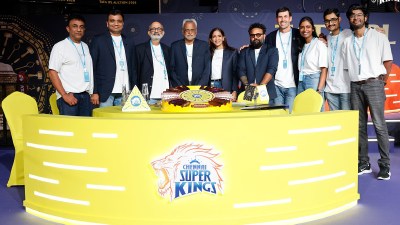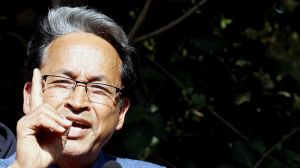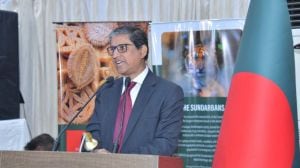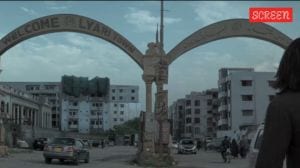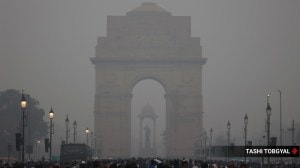Ezhavas to Nairs, Muslims to Christians: Key groups behind Kerala’s perennial power play
From selection of candidates to framing of planks to running of campaigns, the interests and concerns of such communities are factored in by Kerala's parties in their bids to retain vote banks and expand bases to rival turfs
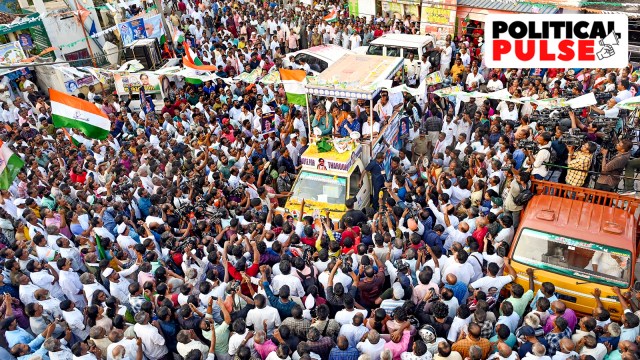 Congress leader Priyanka Gandhi Vadra with party candidate Shashi Tharoor during a road show for Lok Sabha elections, at Poonthura in Thiruvananthapuram, April 20, 2024. (PTI)
Congress leader Priyanka Gandhi Vadra with party candidate Shashi Tharoor during a road show for Lok Sabha elections, at Poonthura in Thiruvananthapuram, April 20, 2024. (PTI)Various castes and communities in Kerala play a crucial role in driving the politics of the leading parties and their alliances. In the election season, from the selection of candidates to the framing of planks to running of their campaigns, the interests and concerns of such communities are factored in by the parties as part of their strategies to retain vote banks and expand bases to the rival turfs in the state.
Ezhavas
The single largest Hindu community in Kerala, Ezhavas make up about 23% population of the state. The Ezhava community belonging to the OBC category has traditionally been a part of the ruling CPI(M)-led Left Democratic Front (LDF)’s vote bank.
The community’s largest outfit SNDP Yogam floated a political party, Bharat Dharma Jana Sena (BDJS), in 2015. The BDJS has been an ally of the BJP-led NDA in the state since the 2016 Assembly polls. However, the BJP has not been able to make inroads into the Ezhava community through the BDJS mainly because the latter’s grassroots level workers are the SNDP Yogam’s members, who are associated with various parties, especially the CPI(M).
During the BJP-led agitation against the entry of women into the Sabarimala temple in 2018, the BDJS backed the protesters. However, the BDJS patron and SNDP Yogam general secretary, Vellappally Natesan, remained with the CPI(M)-led government’s “renaissance movement platform” formed to counter the Sabarimala agitation.
In the 2019 Lok Sabha elections, the BDJS contested, unsuccessfully, 4 seats out of 20, but got only 1.88% of votes. Its ally BJP contested 15 seats, but again failed to open its account while getting 13% votes.
In the 2021 Assembly elections, the BDJS contested 21 out of 140 seats, but its vote share dipped further to 1.06%. The BJP contested 113 seats, but drew a blank while its vote share fell to 11.30%. In many of these seats, the LDF emerged victorious or improved its vote share as compared to the previous elections.
In the 2024 Lok Sabha elections, the BDJS is again contesting 4 seats as compared to the BJP’s 16 seats. BDJS chairman Thushar Vellappally is in the fray from Kottayam while BJP leader and Union minister V Muraleedharan is contesting from the Attingal seat, where Ezhavas form a sizeable chunk of the voters.
Muslims
Muslims are the second-largest religious community in the state, making up 26% of its population. The Muslim community politics in Kerala has been traditionally dominated by the IUML, an ally of the Congress-led United Democratic Front (UDF). The churning in the community in the last two decades have led to formation of several parties and splinter groups, but they have remained behind the IUML, which is part of mainstream politics at the state and national levels.
The Muslim voters play a decisive mainly in the North Kerala constituencies of Wayanad, Malappuram, Kozhikode, Vadakara, Kannur, Ponnani and Kasaragod.
The CPI (M) has been trying to make inroads into the community, mainly targeting Sunni Muslims, who have been closely associated with the IUML. The Muslim vote especially assumes significance in this election with the concerns over the Citizenship Amendment Act (CAA) turning into a major election issue in the state. Both the CPI(M) and the Congress have positioned themselves aggressively against the BJP, even as they are also taking on each other in the state while being the INDIA alliance partners at the national level.
Christians
The other minority community, Christians, which form 18% of the state’s population, has also been traditionally with the Congress. However, the decline of the regional Christian party Kerala Congress groups and the exits or deaths of the Congress’s key Christian faces have led to the BJP launching an outreach to the community.
In Central Kerala’s constituencies where the Christian vote is pivotal, the Congress and CPI(M) have vied with each other to take over the community vote bases from the Kerala Congress factions.
Among Christians, Catholics are the dominant group. While the Catholic Church has been grappling with some internal administrative issues, there have been differences between the Jacobite and Orthodox Churches over the control of certain churches.
There seems to be some resentment among a section of Christians over the bids of both the Congress and the CPI(M) to woo Muslims. The upper caste Chrisian groups have also been concerned with the Congress’s pitch for a national caste census.
This has given an opportunity to the BJP and the Sangh Parivar to make attempts to reach out to the Christian community.
The Manipur ethnic strife raging since May last year has however dealt a blow to the BJP’s bid to connect with Kerala’s Christians. The state’s Churches as well as dioceses seem to be divided on their approach towards the BJP in light of the Manipur crisis.
Nairs
The upper caste Hindu Nair community, which accounts for about 14% of Kerala’s population, is an influential group which has a strong representation in politics and governance. The community’s outfit Nair Service Society (NSS) had a political wing, National Democratic Party, which had been part of the UDF. It was dissolved in 1995 when the Congress was in power. The NSS has since officially stuck to its position of being “politically equidistant” from the parties.
In the current Pinarayi Vijayan Cabinet, seven out of 21 ministers are Nairs, although the NSS leadership was believed to have been against the CPI(M) in the 2021 polls. Recently, the NSS leadership hailed three-time MP Shashi Tharoor as an “original Nair”. Tharoor is contesting again as the Congress’s candidate from Thiruvananthapuram, where the Nair vote is considered a key factor.
 Congress candidate for Lok Sabha polls Shashi Tharoor offers prayers at the Aruvippuram Shiva temple, in Thiruvananthapuram, April 21, 2024. (PTI)
Congress candidate for Lok Sabha polls Shashi Tharoor offers prayers at the Aruvippuram Shiva temple, in Thiruvananthapuram, April 21, 2024. (PTI)
The state Congress leadership also has other prominent Nair faces such as K C Venugopal, Ramesh Chennithala and K Muraleedharan.
Tharoor is taking on high-profile BJP candidate and Union minister Rajeev Chandrasekhar, who is also a Nair. In Kollam, Pathanamthitta and Kottayam seats too, the Nair community plays a decisive role in determining the poll outcome. The BJP’s candidate in Thrissur is actor-turned-politician Suresh Gopi, who also belongs to the Nair community.
Dalits
The Scheduled Castes (SCs) form about 9% of the state’s population, who have been mainly associated with the CPI(M) and the Congress through various organisations. Alalthur and Mavelikkara are two SC-reserved seats.
Six-time Lok Sabha member Kodikunnil Suresh, who is contesting from Mavelikkara, is the prominent Dalit politician from the Congress.
State minister K Radhakrishhan, who is contesting from the Alathur seat, is a leading Dalit face in the CPI(M). While Suresh is an invitee to the Congress Working Committee, Radhakrishan is a CPI(M) Central Committee member.
- 01
- 02
- 03
- 04
- 05


